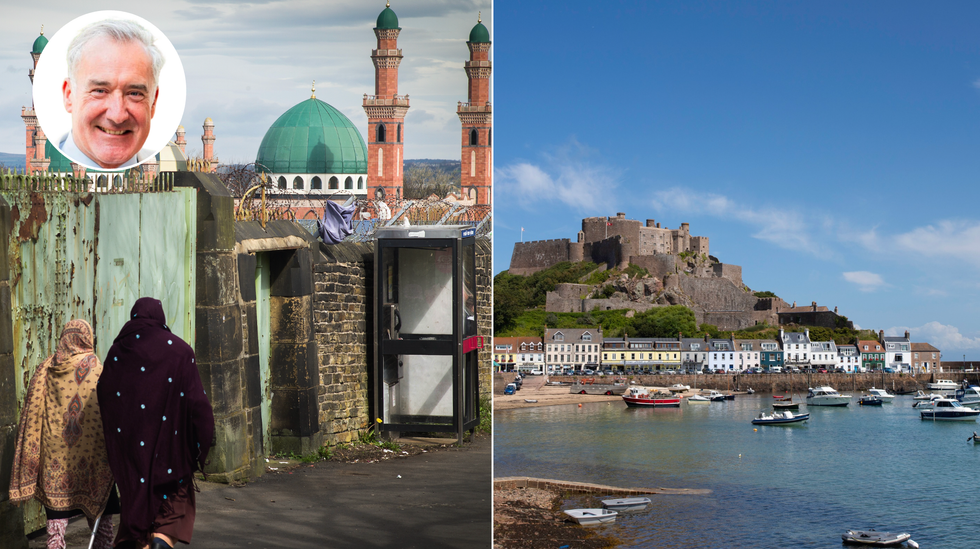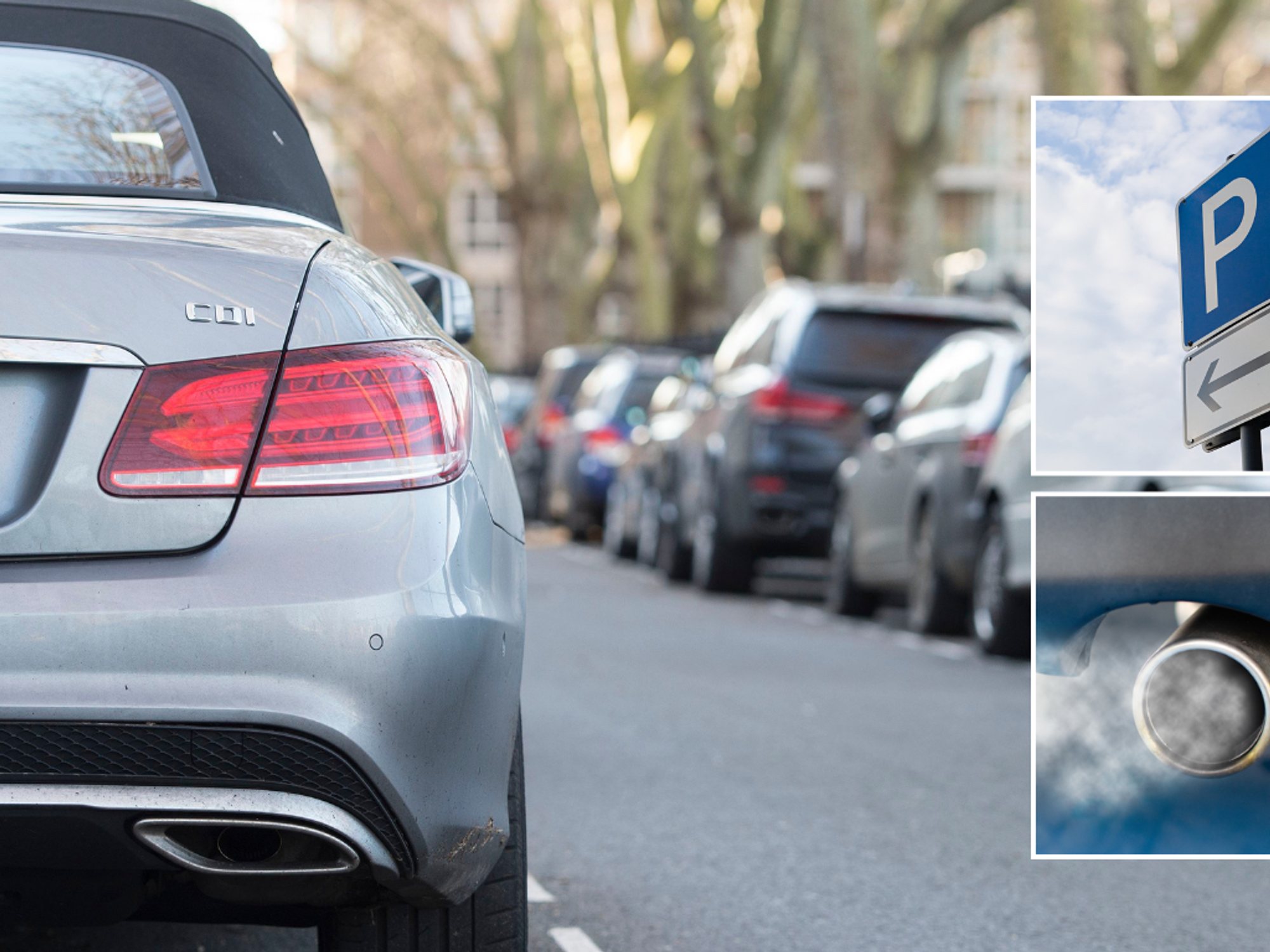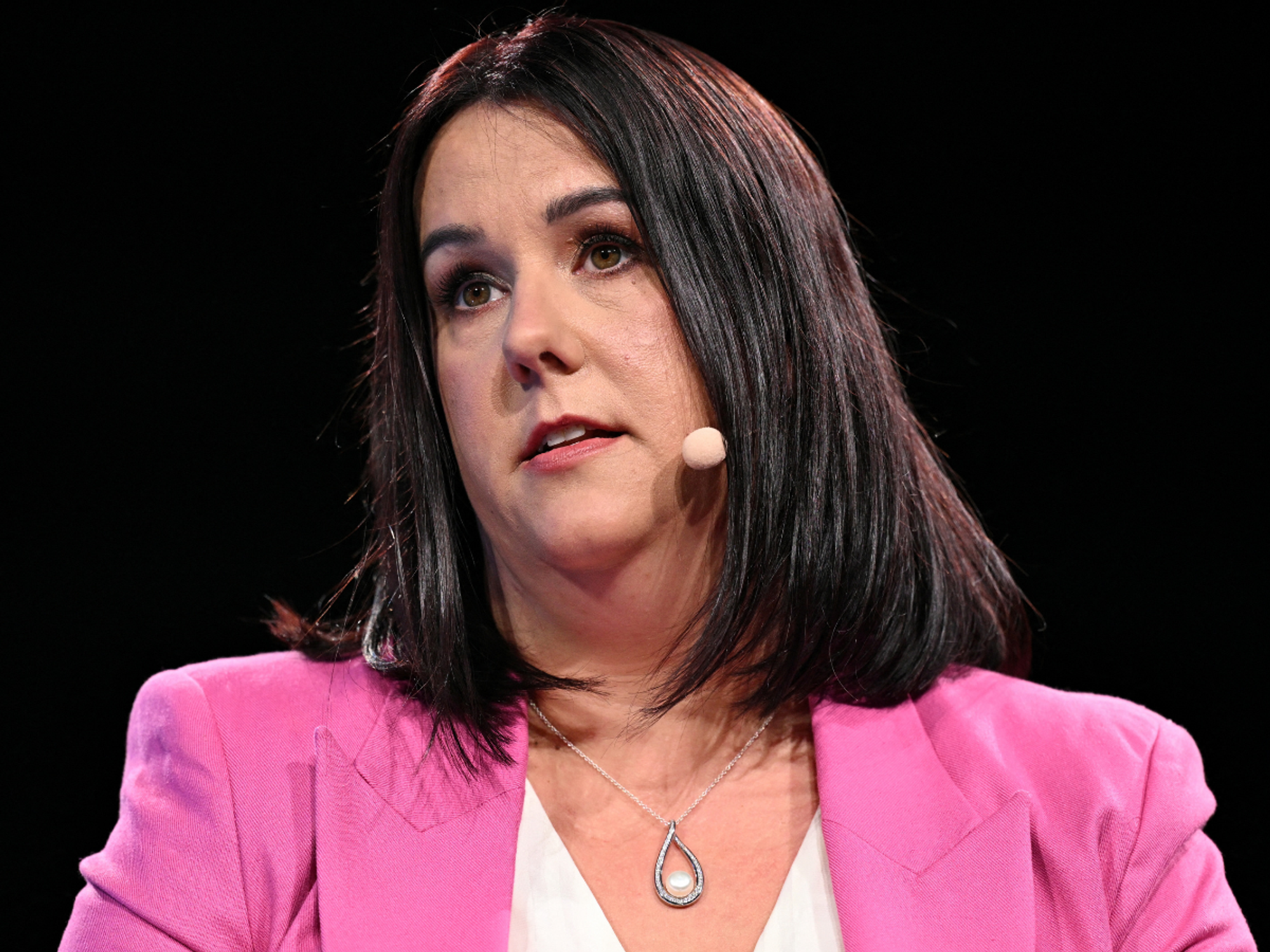Want to stop Britain from becoming one big Bradford? The answer lies 85 miles off the coast - Colin Brazier
If Britain wants to get serious about migration it needs to copy Jersey
Don't Miss
Most Read
Trending on GB News
If Britain wants to get serious about migration, it needs to copy Jersey.
The English Channel may be the source of our current woes concerning illegal migration, but it could also hold the key to solving them.
Because, while the world’s busiest waterway has proved all too easy for migrants to cross on inflatable dinghies, it is also home to territories which show how migration can be managed to everyone’s advantage.
**ARE YOU READING THIS ON OUR APP? DOWNLOAD NOW FOR THE BEST GB NEWS EXPERIENCE**
Those territories are the Channel Islands, from where I am writing while staying with relatives. They live on Jersey, home to 100,000 souls and one of our biggest Crown Dependencies.
Here we are only 14 miles from France, and more than 80 miles from the English coastline. But, as anyone who has ever visited Jersey will attest, the strongest cultural influences are unmistakably British.
But while mainland Britain is nowadays convulsed by tensions over levels of migration for which democratic assent was never sought, Jersey seems to have found a way of retaining its ethnic identity, while overcoming labour shortages.
Five years ago, the Bailiwick of Jersey (to give it its proper name), introduced seasonal work permits. These allow migrant workers to come and fill some of the island’s many vacancies in the care, construction and hospitality sectors.
Want to stop Britain from becoming one big Bradford? The answer lies 85 miles off the coast - Colin Brazier
|Getty Images
Unlike the UK, these visas come with strict conditions and rules that are hard to bend. Workers must leave the islands for three months each year, and housing (naturally limited in supply on an island) is linked to employment status.
Over recent decades, Jersey has seen influxes of workers from England, Scotland and Portugal. But today, given demographic pressures, these are all nations which are no longer in the business of exporting people.
So, this summer, a company acting on behalf of Jersey (and Guernsey and the Isle of Man) signed a new deal to recruit hundreds of Kenyans. Many were already working in restaurants and bars. Now, more will come.
For some people, this sudden influx of one distinctive ethnic group might prove alarming. But in Jersey, which recognises King Charles as monarch, while retaining autonomy over laws and money, there is no sense that the delicate fabric of social cohesion has been sundered. Why?
For one thing, because Jersey has its own parliament and makes its own rules on migration, it has created a system which firmly limits the right to stay here. Lest that sounds uncaring, consider that there are many native sons and daughters of Jersey who can’t afford to live here.
But there are other considerations in play. The significant factor is the choice of Kenya as the chief recruiting ground for foreign workers. Jersey is not alone in this.
Last year, Germany’s Chancellor Olaf Scholz signed a deal with Nairobi, opening up the German labour market to 250,000 Kenyans.
Nobody wants to say it, of course, but why should Germany and Jersey be so keen to invite Kenyans into their communities, rather than say, Somalians or Pakistanis?
Earlier this year I spent a week in Kenya. The woke worldview insists that exposure to the British Empire did nothing but harm.
But Kenya is living proof of this bogus ideology. It is forging ahead economically and demographically, driven in part by systems of governance successfully transplanted by British imperialists and Christian missionaries.
Kenya now has a surfeit of well-educated and ambitious young people. There is a danger of a drain, but, in a sense, a genuinely tough (rather than tough-sounding) work visa scheme mitigates its risk.
Going to Jersey for a few years allows a young Kenyan to save up money to get on the housing ladder or start a business back in Kenya. Nobody is forcing them to move to Jersey, even less to stay.The relationship is clear-eyed and transactional (something those who mythologise the ‘Windrush Generation’ as motivated wholly by goodwill rather than a desire to simply ‘get on’ would do well to remember).
There are, however, signs that the race-grifters and grievance-mongers who have done so much to make honest debate about immigration into Britain impossible now have Jersey in their sights.
This month, the left-leaning Observer newspaper trained its fire on the island, using phrases like ‘modern servitude’ to describe Jersey’s recent handling of migration.
It drew on unfavourable comparisons with the ‘kafala’ system used in Gulf States, which have very consciously - often controversially - allowed for an influx of workers, without diluting the privileges of indigenous citizenship.
But, while it is plain daft to compare Jersey with Jeddah, there is one sense in which the Channel Islands can never be islands unto themselves. They are not immune to the bigger forces shaping global society. In fact, in some respects, Jersey faces harder choices than the rest of us.
This year, for instance, the island’s birth rate fell to the lowest level since the end of the Nazi occupation in 1945. The number of births plummeted by ten per cent in just one year and has fallen by a third since 2012.
According to the latest data, Jersey’s overall fertility rate has nosedived to 1.29 per cent (for comparison, the UK’s rate is hovering at a historically record-low level of 1.41).
Last month, the island’s Chief Minister said policies were “under development” to address the epidemic of empty cradles.As in so many other parts of Europe - but not the UK - governments are waking up to the fact that the only alternative to endlessly importing foreign labour is to ‘grow your own’.
What is known in the jargon as ‘pro-natalism’. It will be interesting to see how Jersey, an island which economically punches way above its weight thanks to its booming financial services sector, will seek to encourage its people to have more babies.
But just as interesting, especially as Britain grapples with demonstrations outside migrant hotels, is the philosophy which directs Jersey’s immigration policies.
But Britain is an island, and that hasn’t stopped it from creating a broken migration system that has seen the UK population rise by 13 million since the turn of the century, with most of that growth a product of migration.
The truth is that history and geography matter. Historically, Jersey is still home to islanders who remember what it’s like to be taken over by an occupying foreign power.
On such a modest landmass, there can be no dumping people into ghettoes and forgetting they exist, as happened to my native Bradford.
Here, it takes about 30 minutes to drive from one end of the island to the other. Anyone importing an ethnic community which later seeks to self-segregate and live parallel lives would be unable to ignore the consequences, as so many middle-class Britons have hitherto managed.
Jersey prizes its citizenship and has learned, in a way we in Britain have forgotten, that giving it away to all-comers is an act of arch stupidity.
More From GB News











